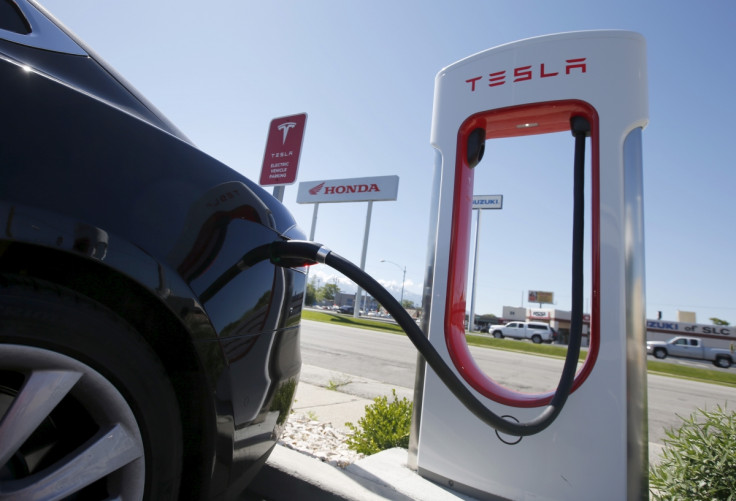Tesla owner fined for electric car 'producing more emissions than a Range Rover'

UPDATE: Tesla has issued a lengthy statement on this, which you can read at the bottom of the article.
A Tesla Model S owner has been fined £7,600 because his all-electric car was deemed to produce more harmful emissions than a petrol-powered V8 Range Rover. Instead of receiving a grant from the Singapore government, the man was banned from driving his car until he paid the fine.
Joe Nguyen, a 44-year-old IT professional, is the first person in Singapore to own a Tesla, but was unable to drive the car for seven months while the state's government decided how its emissions should be tested. It eventually claimed the car consumes 444 watt hours of electricity per kilometer (Wh/km), more than double Tesla's quoted figure, and the equivalent of 222 grams of CO2 per kilometer. A Range Rover with a 4.4-litre V8 engine produces 219g/km.
"They kept asking for more and more paperwork," Nguyen told Stuff Singapore. "They wanted the specs, they wanted a number of different metrics, everything from emissions to the certificate of conformity, which is related to petrol cars and Tesla doesn't have it." Nguyen can now drive his Tesla, but had to agree not to charge it in public, and to only refill the batteries with electricity from his own house.
@Astro_Valdric @TeslaMotors We spoke earlier today and he said he would investigate the situation.
— Elon Musk (@elonmusk) March 4, 2016
Since news broke about Nguyen's problems, Elon Musk called up Lee Hsien Loong, the prime minister of Singapore; the pair recently met on a visit by the prime minister to the US and Silicon Valley. Musk tweeted to say they had spoken and he would "investigate the situation." It was later confirmed that various government agencies were looking into what happened and how it can be prevented from happening again.
This bizarre situation is only the latest roadblock stopping Tesla from doing business in Singapore. The company set up an office there in 2011 when it was producing its first car, the Roadster. But after months of negotiations, the government deemed Tesla's electric cars did not meet "technical requirements". No further details were given, forcing Tesla to pack up and leave.
Despite this and the issues faced by Nguyen, Singapore offers $15,000 (£7,600) rebates for buyers of other electric cars, such as the Nissan Leaf. Ironically, the rebate Nguyen was hoping to receive is exactly the same size as his fine for driving a vehicle the state sees as polluting. The way the government sees it is that Nguyen charges his Tesla at home, using electricity which may have been produced at one of Singapore's oil-fired power stations.
Tesla statement in full:
"The Model S that our customer imported into Singapore left our factory in 2014 with energy consumption rated at 181 Wh/km. As the Land Transport Authority has confirmed, this qualifies as the cleanest possible category of car in Singapore and entitles the owner to an incentive rather than a fine.
"Model S achieves this result because CO2 emissions in gas-powered cars are far higher than in electric cars. In Singapore, electricity generation releases roughly 0.5kgCO2/kWh. Based on energy consumption in Model S of 181 Wh/km, this results in 90 g CO2/km. Driving an equivalent gas-powered car like the Mercedes S-Class S 500 results in emissions of approximately 200 gCO2/km. And because of oil extraction, distribution, and refining, approximately 25% more has to be added on top of that to calculate the real carbon footprint of gas-powered cars. That means an electric car like the Model S has almost three times lower CO2 per km than an equivalent gas-powered car. Moreover, as Singapore increases the percentage of grid power from solar and wind, the CO2 from electricity drops with each passing year.
"We are having cooperative discussions with the LTA to ensure a proper understanding of these issues and to make sure that they are correctly testing our customer's Model S. Based on the positive nature of those discussions, we are confident that this situation will be resolved soon."
© Copyright IBTimes 2025. All rights reserved.






















